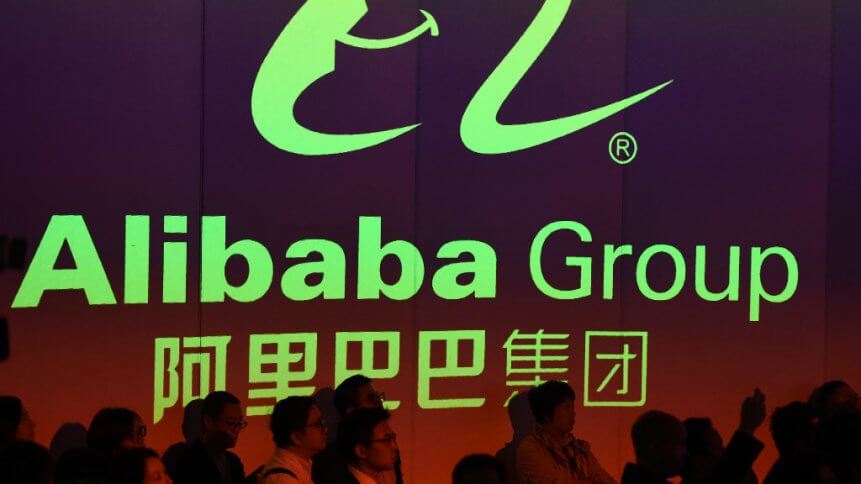How Alibaba’s e-commerce influence is gaining ground globally

- Chinese consumers are responsible for about 40% of the global luxury retail market
- Alibaba announced revenues for its fourth quarter of the fiscal year
- Michael Kors and Allbirds are among brands that have partnered with Asian e-commerce giant
COVID-19 has thrown the retail sector into a downward spiral. The once booming sector is now faced with diminished store footfalls, and experts predict it may take months for traffic to rebound and possibly even years before retail can return to pre-pandemic levels. For some experts, they predict brick-and-mortar retail may never recover to its pre-outbreak levels.
Undeniably, the current climate has had a huge impact on the industry overall, and it’s bound to impact the future of retail as well. A survey by global consulting outfit McKinsey concluded that “the pandemic is causing some retailers to reassess their footprint and future format.”
The report revealed about one-third of executives are considering not reopening under-performing stores, and a similar portion are reassessing the launch of new stores. Recognizing the pitfalls of physical retail after the pandemic hit local and global communities, approximately three-quarters of apparel executives are now aiming to venture deeper into their e-commerce offerings.
Now more than ever, e-commerce is set to dominate the retail sphere. Amid the pandemic, Chinese e-commerce titan Alibaba announced solid sales growth and has set out a bullish outlook for 2021, thanks to the evolving shopping trends and consumer habits that emerged amidst the pandemic.
The e-commerce giant reported revenues for its fiscal fourth quarter increased by 22%, amounting to US$16.1 billion, outperforming analysts’ predictions. Certain retail brands will fare well by learning from Alibaba’s success as they enter, reluctantly or willingly, into a new age of retail.
Lights, camera and live stream
Based on a study from the consulting firm Equite, Chinese consumers are responsible for about 40% of the global luxury market, and that figure is expected to rise to 50% by the next decade.
Naturally, luxury brands from across the world have flocked to the lucrative market: Paris-based fashion house Balenciaga is one of the latest brands to join Alibaba’s e-commerce platform, openening its Tmall store in May.
Meanwhile, US fashion brand Michael Kors has launched its digital flagship store on Tmall and has been collaborating with Alibaba since July of last year. Leading with a sequence of promotional activities, Michael Kors offered a new customization service that enables customers to have their handbags hand-painted by artisans or receive their own at-home paint kit. Shoppers were given the opportunity to interact with the namesake designer himself through a personality quiz and receive a message and product recommendation.
“I love meeting my customers, helping them find the perfect pieces for their lifestyle, and talking to them about how they can express their personal style,” said Michael Kors, as reported in Adweek. “The Tmall app allows me to style a wide range of people instantly. It’s like a trunk show for modern times.”
This approach follows a similar wave that is reshaping e-commerce trends in China: The rise of retail-streaming. TechHQ recently covered the growing trend of C-suite members making guest appearances on live streams promoting their products and services. The results have been remarkable. James Liang, the executive chairman and former CEO of Trip.com, generated US$8.4 million in sales selling travel packages via live streams.
Know your local market
Another US-based company Allbirds has also found its entry into the Chinese market by partnering with Alibaba: “Being on Tmall works for two important reasons. First and foremost, that’s where the consumers are in China. Secondly, because of the way the platform runs, it does allow us to operate like a direct to consumer brand,” Erick Haskell, the President of Allbirds International said in a video.
Haskell explained Allbirds were able to control the look and the feel of the site, as well as all engagements with consumers.
The apparel company acquired a holistic view of the Chinese market and its consumer taste and, in turn, has adapted its marketing strategies and interaction styles to meet these expectations.
The lesson of localization is evident here, and it isn’t restricted to e-commerce. Streaming giant Netflix leveraged the concept of localization when tapping into emerging markets such as Malaysia and India. Last year, the streaming giant launched a mobile-only subscription plan in Malaysia and India, offering prices as low as RM17 (US$4) and RS199 (US$3) per month, catering to the high penetration of mobile users in those regions.
The company inked a partnership with local telecommunications services to optimize their operations and ensure a smooth entry into these untapped markets. “Every partnership is slightly unique, and it’s a great opportunity for us to grow and to partner with these local organizations,” Ajay Arora, Director of Product Innovation at Netflix, told TechHQ.










